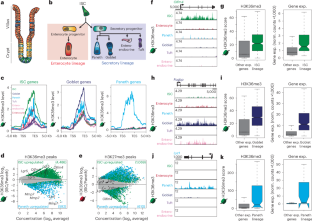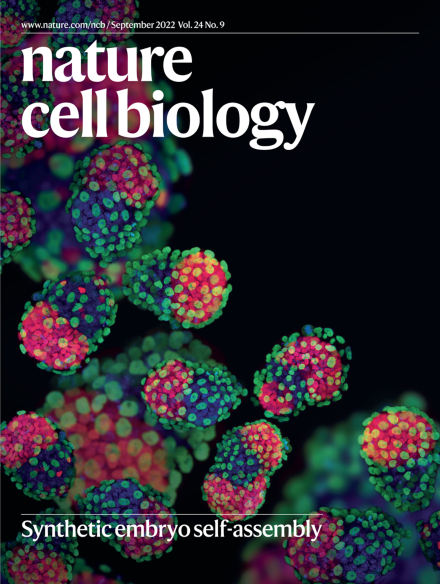H3K36 methylation regulates cell plasticity and regeneration in the intestinal epithelium
IF 17.3
1区 生物学
Q1 CELL BIOLOGY
引用次数: 0
Abstract
Plasticity is needed during development and homeostasis to generate diverse cell types from stem and progenitor cells. Following differentiation, plasticity must be restricted in specialized cells to maintain tissue integrity and function. For this reason, specialized cell identity is stable under homeostatic conditions; however, cells in some tissues regain plasticity during injury-induced regeneration. While precise gene expression controls these processes, the regulatory mechanisms that restrict or promote cell plasticity are poorly understood. Here we use the mouse small intestine as a model system to study cell plasticity. We find that H3K36 methylation reinforces expression of cell-type-associated genes to maintain specialized cell identity in intestinal epithelial cells. Depleting H3K36 methylation disrupts lineage commitment and activates regenerative gene expression. Correspondingly, we observe rapid and reversible remodelling of H3K36 methylation following injury-induced regeneration. These data suggest a fundamental role for H3K36 methylation in reinforcing specialized lineages and regulating cell plasticity and regeneration. Pashos et al. show that H3K36 methylation maintains intestinal epithelial fate commitment, whereas its suppression, which is also observed upon injury, induces a plastic state and expression of genes involved in regeneration.


H3K36甲基化调节肠上皮细胞的可塑性和再生
干细胞和祖细胞在发育和体内平衡过程中产生不同类型的细胞需要可塑性。分化后,可塑性必须限制在特化细胞,以维持组织的完整性和功能。因此,特化的细胞身份在稳态条件下是稳定的;然而,一些组织中的细胞在损伤诱导的再生过程中恢复了可塑性。虽然精确的基因表达控制着这些过程,但限制或促进细胞可塑性的调节机制却知之甚少。本研究以小鼠小肠为模型系统研究细胞可塑性。我们发现H3K36甲基化加强了细胞类型相关基因的表达,以维持肠上皮细胞的特化细胞身份。耗尽H3K36甲基化破坏谱系承诺并激活再生基因表达。相应地,我们观察到损伤诱导再生后H3K36甲基化的快速和可逆重构。这些数据表明,H3K36甲基化在加强特化谱系和调节细胞可塑性和再生中起着重要作用。
本文章由计算机程序翻译,如有差异,请以英文原文为准。
求助全文
约1分钟内获得全文
求助全文
来源期刊

Nature Cell Biology
生物-细胞生物学
CiteScore
28.40
自引率
0.90%
发文量
219
审稿时长
3 months
期刊介绍:
Nature Cell Biology, a prestigious journal, upholds a commitment to publishing papers of the highest quality across all areas of cell biology, with a particular focus on elucidating mechanisms underlying fundamental cell biological processes. The journal's broad scope encompasses various areas of interest, including but not limited to:
-Autophagy
-Cancer biology
-Cell adhesion and migration
-Cell cycle and growth
-Cell death
-Chromatin and epigenetics
-Cytoskeletal dynamics
-Developmental biology
-DNA replication and repair
-Mechanisms of human disease
-Mechanobiology
-Membrane traffic and dynamics
-Metabolism
-Nuclear organization and dynamics
-Organelle biology
-Proteolysis and quality control
-RNA biology
-Signal transduction
-Stem cell biology
 求助内容:
求助内容: 应助结果提醒方式:
应助结果提醒方式:


